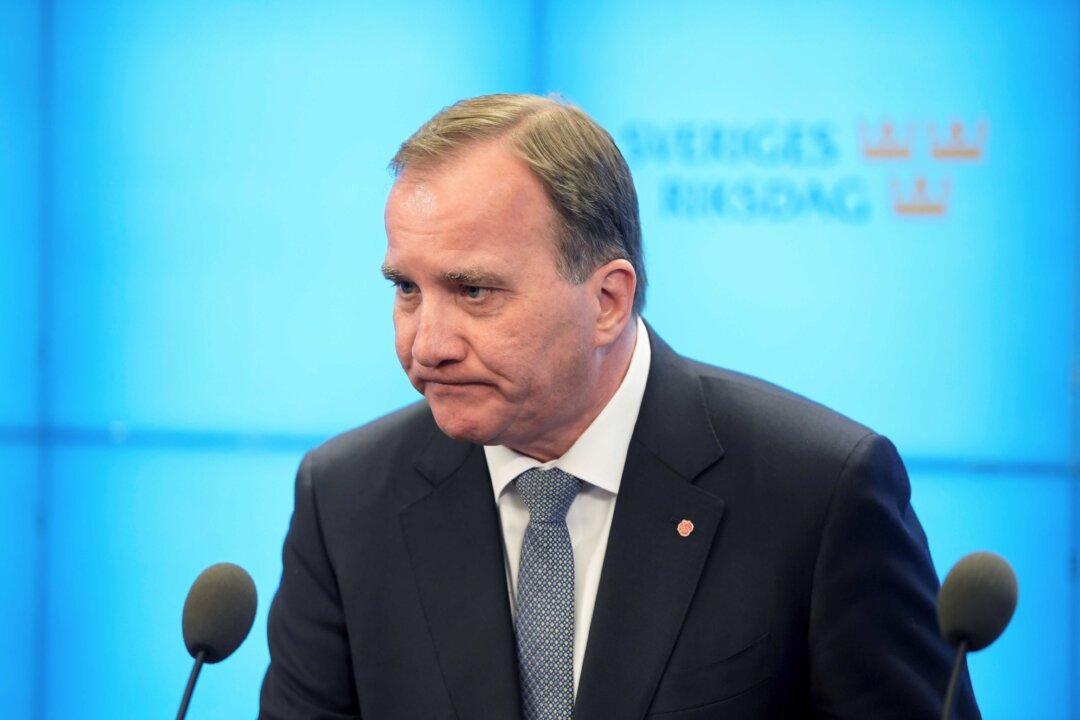STOCKHOLM—Swedish Prime Minister Stefan Lofven lost a no-confidence vote in parliament on Sept. 25, with the anti-immigration Sweden Democrats threatening to block any new government unless they are given a say in policy.
The rise of right-wing parties across Europe has forced many traditional parties into a choice of sharing power with populist forces or reaching out to long-standing opponents to keep them out.





